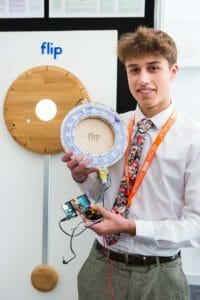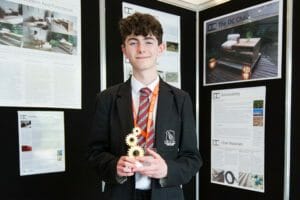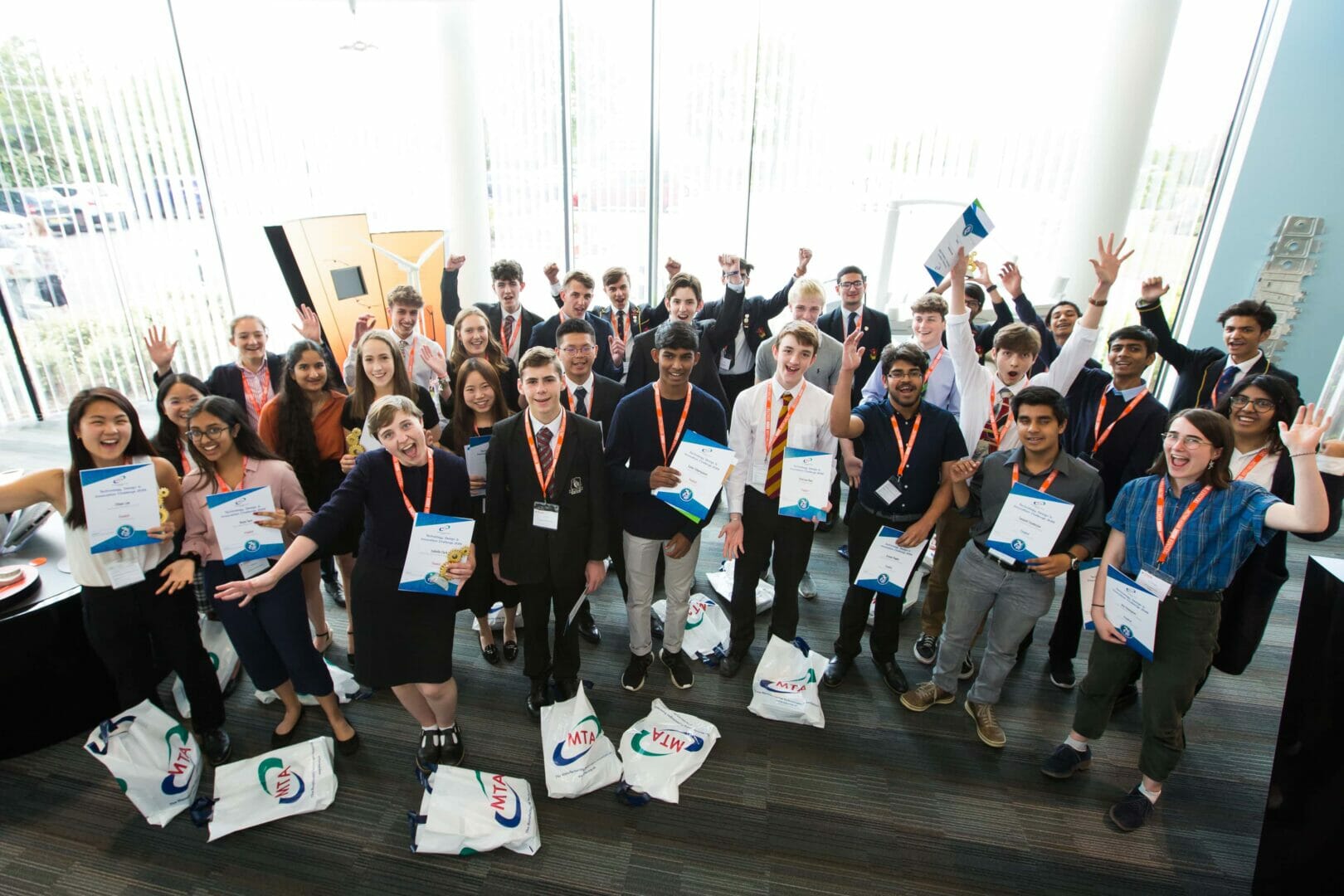The final of the Manufacturing Technologies Association’s (MTA) flagship school’s competition, the Technology, Design and Innovation (TDI) Challenge took place this week at the European headquarters of Yamazaki Mazak in Worcester.
The long running competition sees students from across the UK submit either their GCSE, A-Level or BTEC Design and Technology Course Work Projects to be judged by a panel of experts drawn from Industry made up of members of the MTA’s very own technical committee. The students are split into two judging fields of 14-16 year olds and 17-19 year olds. There is also a Group category which recognises extracurricular work.
This year saw a change in the way the final is judged with, as well as overall winners in each age group, prize’s awarded for best use of Manufacturing Technology and Best Innovation. This year, for the first time, there was also a People’s Vote prize awarded by a vote of all those attending the day.
Stewart Lane, Corporate Manager, Renishaw, Chair of the MTA Education and Development Committee and Chair of the judging panel for the TDI Competition, said “The final of the TDI is always an inspiring event and the standard of entries for this year’s competition were some of the highest we’ve seen. The range of technologies used in both the design and manufacture of the projects was genuinely impressive and the students have to be congratulated in making this one of the most competitive TDI’s we’ve had to judge.”
The winner in each category received an individual prize (including iPads, GoPro cameras, Minirig speakers and drones) as well as up to £2000 of funding for their schools to spend on new Design and Technology equipment for the classroom.
Mike Falconer, Education and Development Manager at the MTA said “The TDI gives students the opportunity to create something unique and demonstrate to the judges they have considered the whole manufacturing process, from design, to construction and how to market the product.”
He continued “The quality of innovation on show was phenomenal and we’d like to congratulate all the winners and finalist for producing such amazing work.”
Chris Kalogroulis, Sutton Grammar School, who won in the 17-19 category – and is now a two times winner of the TDI Challenge after winning the 14-16 category in 2016 – said “It was such a big bonus for Flip to win the TDI Challenge, it’s another nice confidence booster. I’m going to try and develop the clock further and see how it turns out and I’m considering trying to sell it. It’s also going to be cool to be able to say I’ve designed two award winning products. This has had a massive impact on my engineering and academic life and played a huge part in the success of my products.”


The full list of winners and judges’ comments can be found below.
Winners
14-16 – Best Overall – Oscar Chainey Sutton Grammar School – OC Chair Project
The Judges said “It was great to see an environmentally themed project win the top prize, this project was aesthetically pleasing and well finished”
14-16 – Best Innovation – Ella Freeman – Henrietta Barnett School – Sole in One Project
The Judges said “A great idea with a fantastic amount of materials research, testing and evaluation”
14-16 – Best use of Manufacturing Technology – Patricia Cheung – Brighton College – Collapsible Cello Chair
The Judges said “This design showed great use of both hand and machine technology culminating in a simple and elegant solution”
17-19 – Best Overall – Chris Kalogroulis, Sutton Grammar School – Flip magnetic clock
The Judges said ‘‘A professionally presented project, the judging panel all asked when they could buy one!’’
17-19 – Best Innovation – Chloe Lee – Henrietta Barnett School – Hummingbird Assistive device for Parkinson’s sufferers
The Judges said “This was an innovative project that helped with a life-limiting condition. The judges were impressed with not only the technology but the understanding and empathy towards the user base’’
17-19 – Best use of Manufacturing Technology – Georgina Edwards – St Peter’s School, York – A-Cam project
The Judges said “It was great to see a finalist with interests in both technology and sport, this project demonstrated excellent use of design and additive technologies”
Best Group Project – Westcliff High School for Boys – Blakiston Anti-Interference Turret
The Judges said “This was an impressive project which involved a high level of technical understanding in electronics and software”
People’s Vote – Isabelle Clark – Haberdashers’ Aske’s School for Girls – Portable Activity Centre
The Judges said “We loved this idea and thought the project was finished to a particularly high standard”





